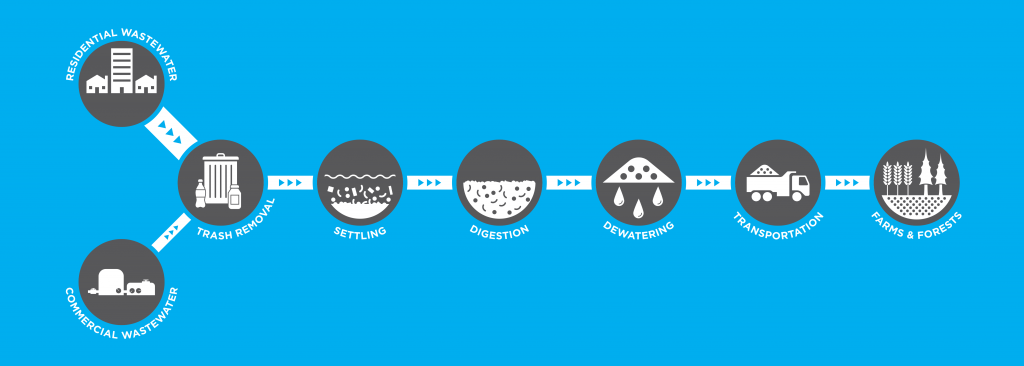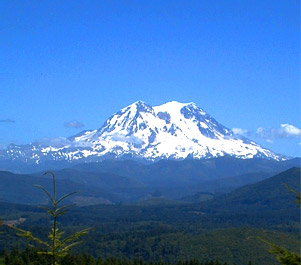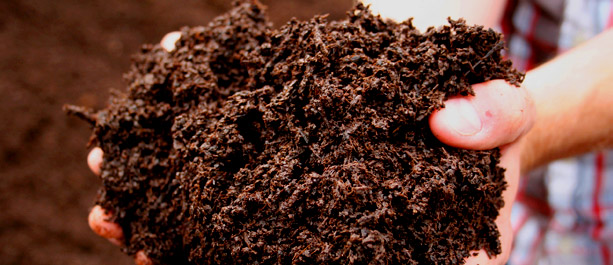Loop is a resource, sourced by you.
Loop is a fertilizer replacement produced by cleaning, recycling, and transforming 100% of the poop and food that goes down toilets and drains. We call it the ‘Poop Loop.’ Nature wastes nothing, and that’s our goal, too! Loop is used by commercial customers on farms and forests to grow bigger crops and trees. Prior to 2020, Loop was turned into a compost for use in urban setting and home gardens.
Loop generates healthier, more productive soil and is good for people, plants, and the planet—now and in the future. Unlike chemical fertilizers, Loop is environmentally responsible and protect fish and other wildlife because it does not cause nutrients to run-off into our waters. Loop products help soil hold rainwater and runoff like a sponge, which keeps dirty water from flowing into Puget Sound, rivers, and streams.
The Poop Loop is powerful, and it starts with you.
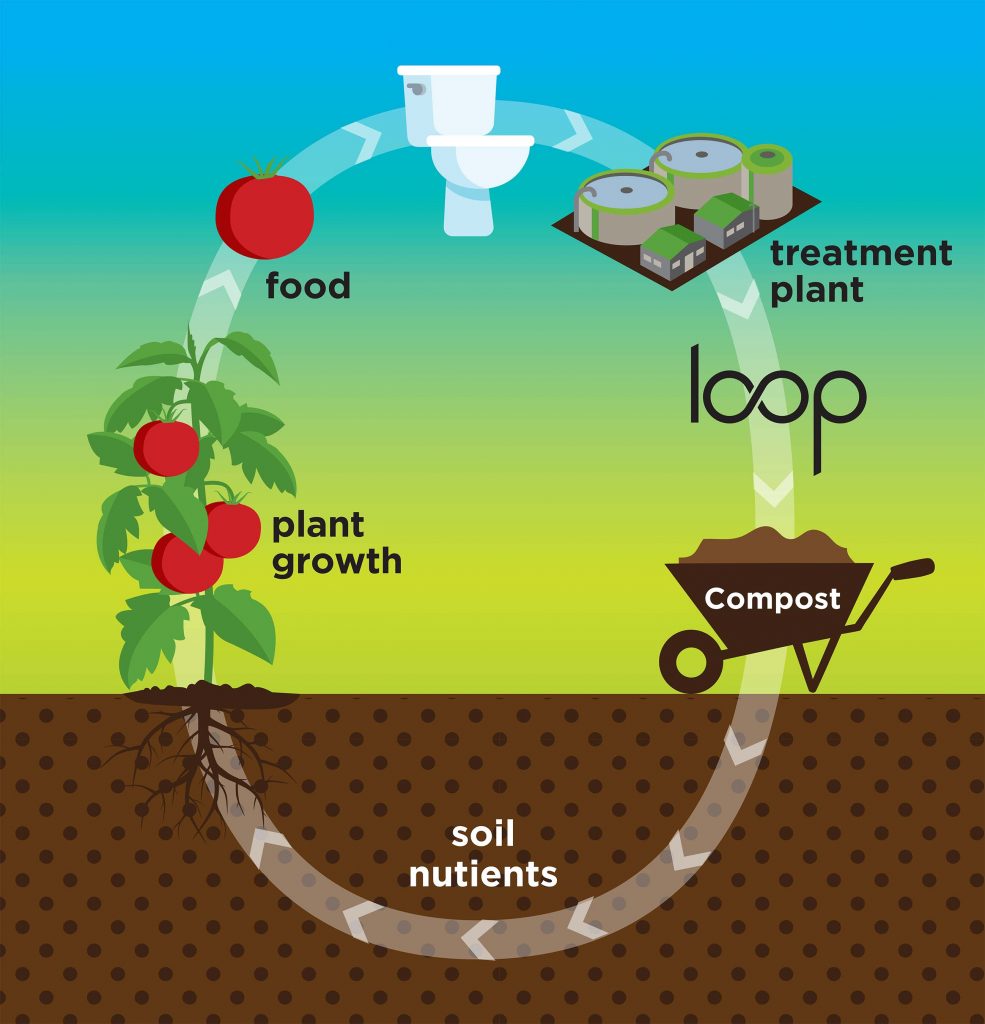
You start the cycle by flushing your toilet. Water flows to our treatment plants in large pipes. At the treatment plant, gravity separates the liquids from the solids. Some of the liquids are cleaned, filtered and disinfected to create recycled water for things like irrigation. The solids (poop and food) go to our digester tanks, which are big heated tanks that work just like your stomach. They use naturally occurring bacteria and other microorganisms to break down the waste and kill disease-causing organisms. While these microorganisms work, they release biogas, which we capture and use for fuel and electricity.
Once Loop is delivered to our customers, it enriches soil with essential nutrients that are slowly released as plants need them. Using Loop recycles the nutrients in our food back to the land, the same way nature does. Harvested plants take nutrients out of the soil, humans eat those nutrients through our food, and then the nutrients are returned to the soil with Loop.
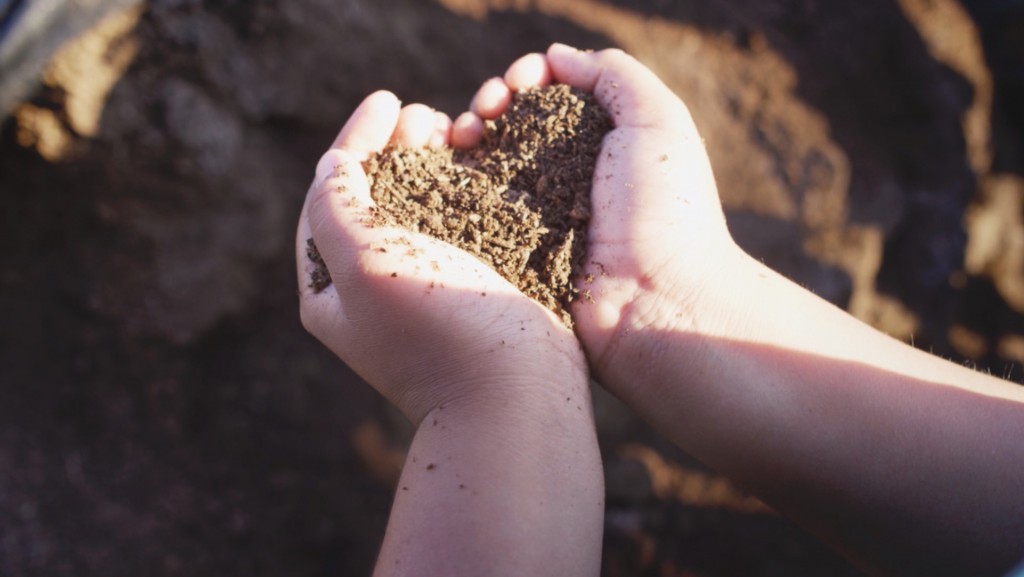
Compost made with Loop is rich in organic matter. Plants love it!
LOOP’S MAJOR MOJO IS MACRO AND MICRONUTRIENTS
Loop is so powerful it brings life back to land where things struggle to grow and, which helps our customers build better businesses. Farmers and foresters have increased crop yields, decreased fertilizer costs, reduced erosion, stored carbon, and replenished the soil.
Loop is a “complete plant food” containing the 16 elements considered essential for plant life. These nutrients include nitrogen, phosphorus and potassium as well as micro-nutrients such as calcium, magnesium, sulfur, copper, iron, selenium, and zinc. We apply only what the plant needs, meeting the exact nitrogen requirements of the crop. That way, Loop’s nutrients and organic matter feed the plants in a healthy, natural way, helping them grow bigger and better while protecting our waters.
For more information on nitrogen, see Managing Nitrogen from Biosolids at the Department of Ecology website.
| AVERAGE CONCENTRATIONS OF NUTRIENTS IN LOOP | ||||||
|
|
||||||
| West Point Treatment Plant |
South Treatment Plant |
Brightwater Treatment Plant |
||||
|
|
||||||
| Ammonia Nitrogen | 0.8% | 1.2% | 0.9% | |||
| Organic Nitrogen | 5.0% | 5.3% | 5.0% | |||
| Phosphorus | 1.6% | 2.5% | 1.6% | |||
| Potassium | 0.1% | 0.2% | 1.4% | |||
| Sulfur | 1.7% | 1.1% | 1.1% | |||
|
|
||||||
HOW TO USE LOOP
In 2020, our compost partner, GroCo Inc. and Sawdust Supply, closed their business and sold their property. Unfortunately, GroCo compost won’t be available for retail sale anymore, but we can recommend other biosolids products such as the City of Tacoma’s TAGRO soil blends.
Loop Compost is on the horizon.
We’ve known that our compost partner was planning to close for many years, and we are exploring bringing a new retail product, Loop compost, to market. We could use a County owned Loop compost in public areas and parks, and distribute it to our neighbors, community gardens, and more. Right now this a dream that has some big challenges, but we are working to make it a reality. Stay tuned for more product availability in the future via a potential King County owned Loop Compost.
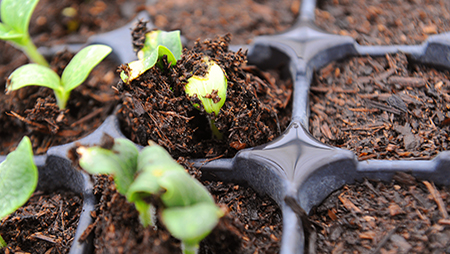
Happy seedlings grown with GroCo compost emerge in early spring.
Loop on its own looks a lot like worm castings, has an earthy smell, and is available to commercial customers. It is usually put on crops using a manure spreader or similar equipment. Because Loop is rich in organic matter and slow release nutrients, one application provides benefits for years. Loop is applied precisely according to decades of research and best management practices.
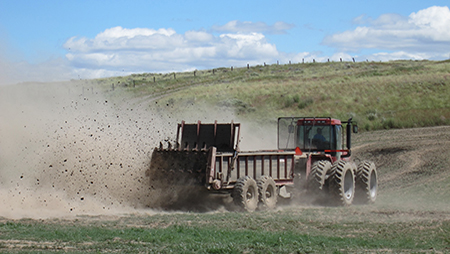
Loop is applied at what’s called an agronomic rate, which means we only apply what the crops needs to grow and thrive.
Rigorously tested and regularly monitored, Loop is checked for safety and effectiveness by the EPA, the State of Washington, and backed by decades of university research. Products like Loop are regulated more stringently than any other soil amendment, manure, compost, or fertilizer on the market.
SEE HOW LOOP IS MADE
Every day you make a donation to us to grow plants somewhere in the state of Washington. It all begins in your house when you turn on your tap and flush your toilet. King County takes care of the rest. After the cleaning process is complete, the result is Loop biosolids, a nutrient-rich soil builder that plants love.
Take a tour of King County’s Wastewater Treatment Plants to see for yourself how Loop is made.
